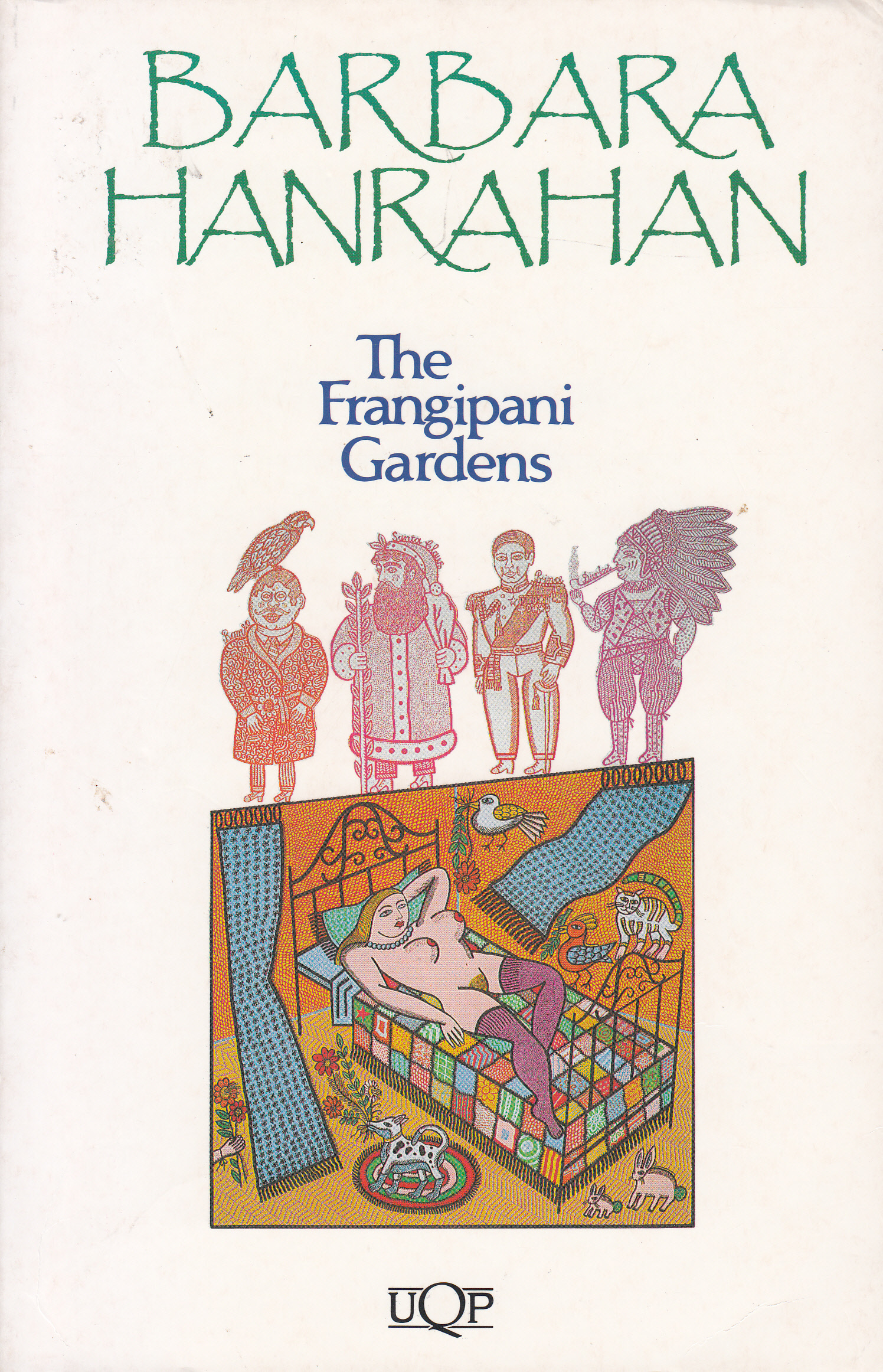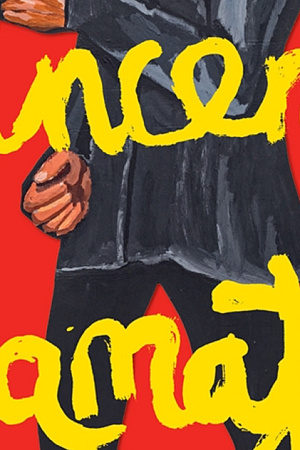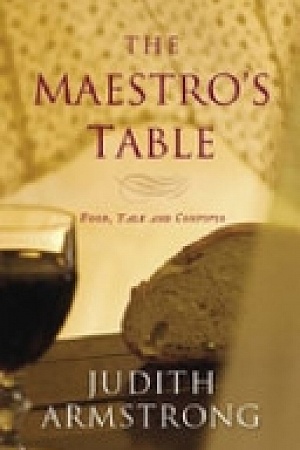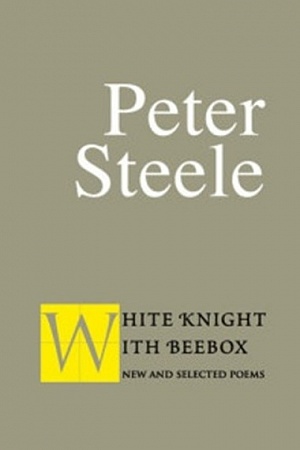The Frangipani Gardens
UQP, $7.95 pb
A Sense of Magic and Mystery
Barbara Hanrahan is arguably the best woman writer to have emerged in Australia in the last decade, and that automatically puts her streaks ahead of most of her male colleagues. The Frangipani Gardens is her sixth novel and with the possible exception of the earlier The Albatross Muff, her best in terms of control, artistry, and characterisation, Perhaps more importantly for her growing number of admirers, Hanrahan is a masterly raconteur, handling her bizarre characters and intricate plots with ease and verve.
She is an obsessive novelist, returning in this novel to the now familiar Hanrahan territory of Adelaide and Fern Gully in the Adelaide Hills, and to the constant themes of sexual exploitation, social injustice, the ludicrousness of middle class Anglo-Saxon mores and conventions, such as royalty, within an Australian context. The most outstanding obsession in all her works and especially evident in The Frangipani Gardens is her knowledge of palpable evil within the heart of each individual and percolating throughout society. Like other Catholic writers, and I only suspect that she is one on the evidence of her fiction, Hanrahan is very attuned to the sense of good and evil in the world: one is constantly reminded of Thomas Keneally, and more pertinently, Graham Greene when reading Hanrahan’s dissection of middle class Australian society and her revelation of the evil, and good, at its core. There is in The Frangipani Gardens a sense of magic and mystery, a snubbing the nose at conventions, especially if they are English, an understanding and sympathy for the underdog and outcast, a healthy disrespect for the clergy and church in all its forms. Like Keneally and other Irish Catholic writers in Australia, there is constant sexual titillation, a plethora of perversions, which serves only to mask an abhorrence for sexuality in most of its forms, especially when hypocrisy and exploitation of the young are involved.
Continue reading for only $10 per month. Subscribe and gain full access to Australian Book Review. Already a subscriber? Sign in. If you need assistance, feel free to contact us.











Leave a comment
If you are an ABR subscriber, you will need to sign in to post a comment.
If you have forgotten your sign in details, or if you receive an error message when trying to submit your comment, please email your comment (and the name of the article to which it relates) to ABR Comments. We will review your comment and, subject to approval, we will post it under your name.
Please note that all comments must be approved by ABR and comply with our Terms & Conditions.